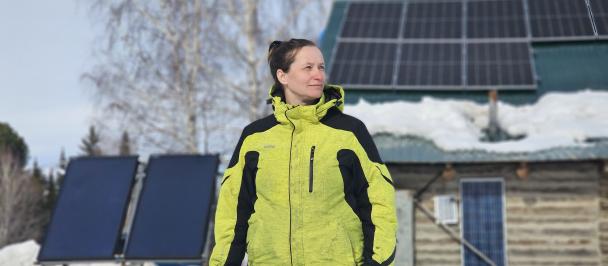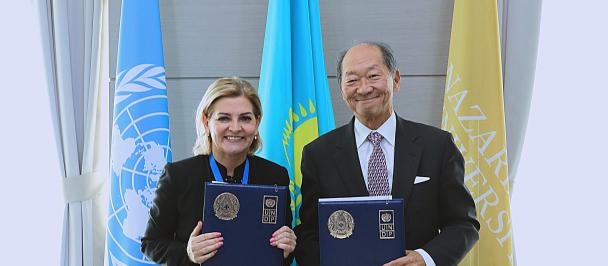UNDP Kazakhstan presents the results of a biofuel production project for the needs of rural areas of Kazakhstan
December 11, 2023
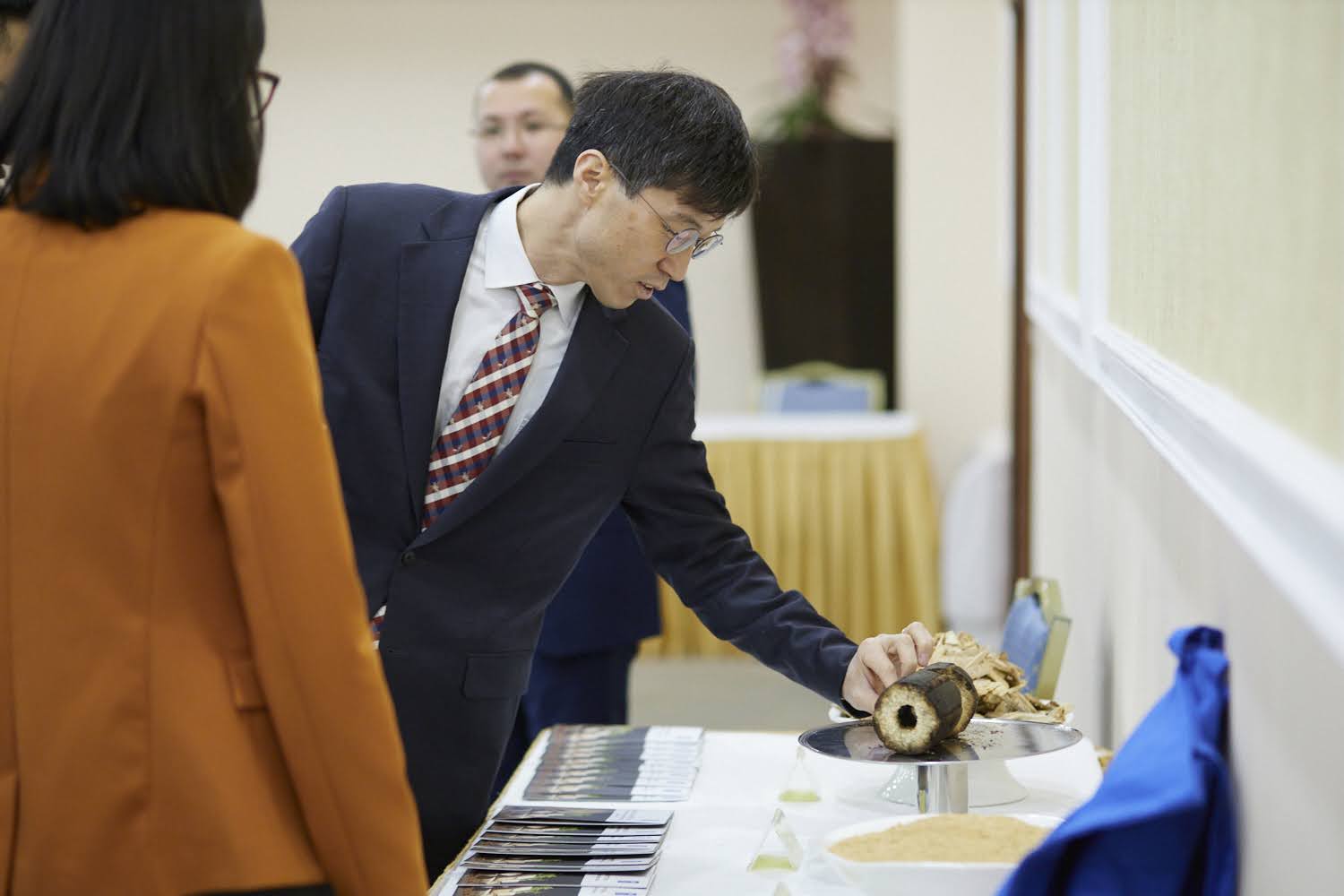
The United Nations Development Programme (UNDP) in Kazakhstan presented the results of the project "Just Transition – green biofuel to benefit women in rural areas of Kazakhstan". This project is a joint initiative of the UNDP and the Ministry of Agriculture of the Republic of Kazakhstan, which aims to introduce cleaner, alternative fuels to progressively displace coal. The initiative also has a gender dimension and aims to improve women's access to energy resources and empower them.
"We are on the cusp of transitioning the global economy to a more inclusive and sustainable development pathway, with a focus on reducing carbon emissions. This transition requires profound changes in various sectors, including energy, food, and industry. Particularly important is the transition to clean energy, which can be accelerated by utilizing previously undervalued resources such as agricultural and wood waste. These materials are not just waste, but also valuable sources of renewable energy. Thanks to the efforts of UNDP and our national partners, they are beginning to benefit all levels - from local communities to the country's economy, opening up new business opportunities and improving people's lives. Our joint commitment to sustainable development emphasizes the importance and efficiency of using renewable energy sources and leads us towards a green and sustainable future for people and the planet,"says Katarzyna Wawiernia, UNDP Resident Representative in Kazakhstan.
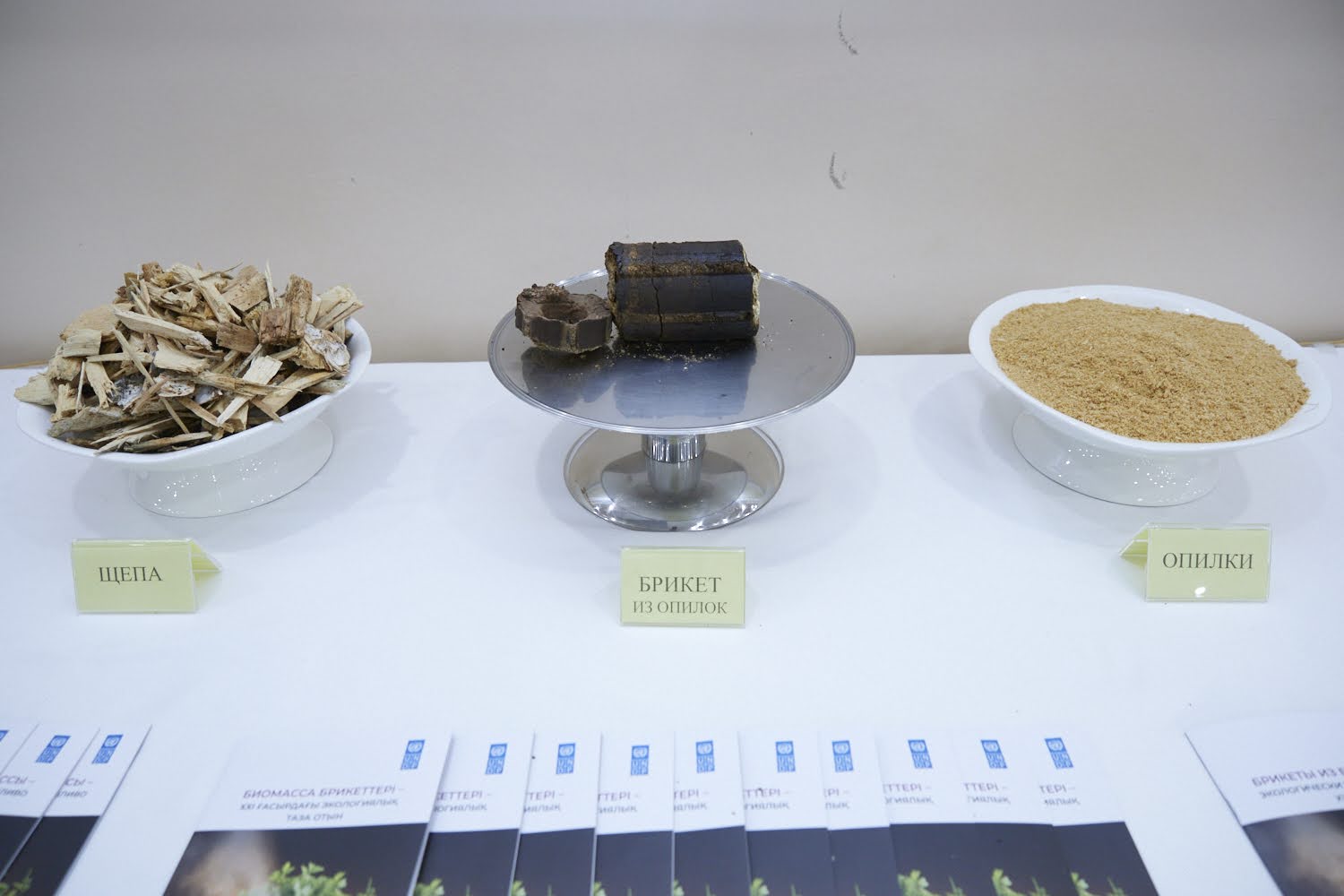
Wood wastes and briquette
Kazakhstan is one of the largest producers of agricultural products. As a result of this activity, considerable amounts of agricultural waste are produced. Some of this waste, such as crop straw, is used to improve soil quality and as animal feed and bedding. In addition to crop waste, significant quantities of wood waste and sunflower husks are also produced. A significant proportion of the waste is either incinerated or decomposes over time, releasing greenhouse gases - carbon dioxide and methane. However, if this waste is recycled, it can be successfully utilized to generate thermal energy in the form of fuel briquettes.
In Kazakhstan, the potential production volume of fuel briquettes from straw is up to 3.500.000 tonnes, and from wood waste is 147.500 tonnes per year, which is equivalent to burning 2.940.000 tonnes of coal. According to a preliminary estimate by UNDP experts, the formation of a new industry for the production of fuel briquettes from biomass will create between 1.400 and 2.800 new enterprises in the regions of Kazakhstan.
According to the research results, the North Kazakhstan region was selected as a pilot region for the production of fuel briquettes/pellets. In 2022, the volume of forest management in the North Kazakhstan region amounted to 512.000 cubic metres, of which 20-25 percent is waste that is currently disposed of by incineration without bringing any benefit to the region's economy.
As part of a joint initiative, two companies in the North Kazakhstan region received grants to start producing briquettes from existing agricultural and wood waste. The UNDP grants covered part of the cost of purchasing and installing the necessary equipment. Entrepreneurs in the region have already started up production lines and donated the first batch of fuel briquettes to socially vulnerable groups. A survey of people who have used these briquettes found that most are willing to switch to alternative fuels if production is possible locally and the costs are comparable to those of traditional fuels. Respondents also cited several advantages of briquettes, such as longer burning time, easy use, low ash content, lower weight, and less odour during combustion.
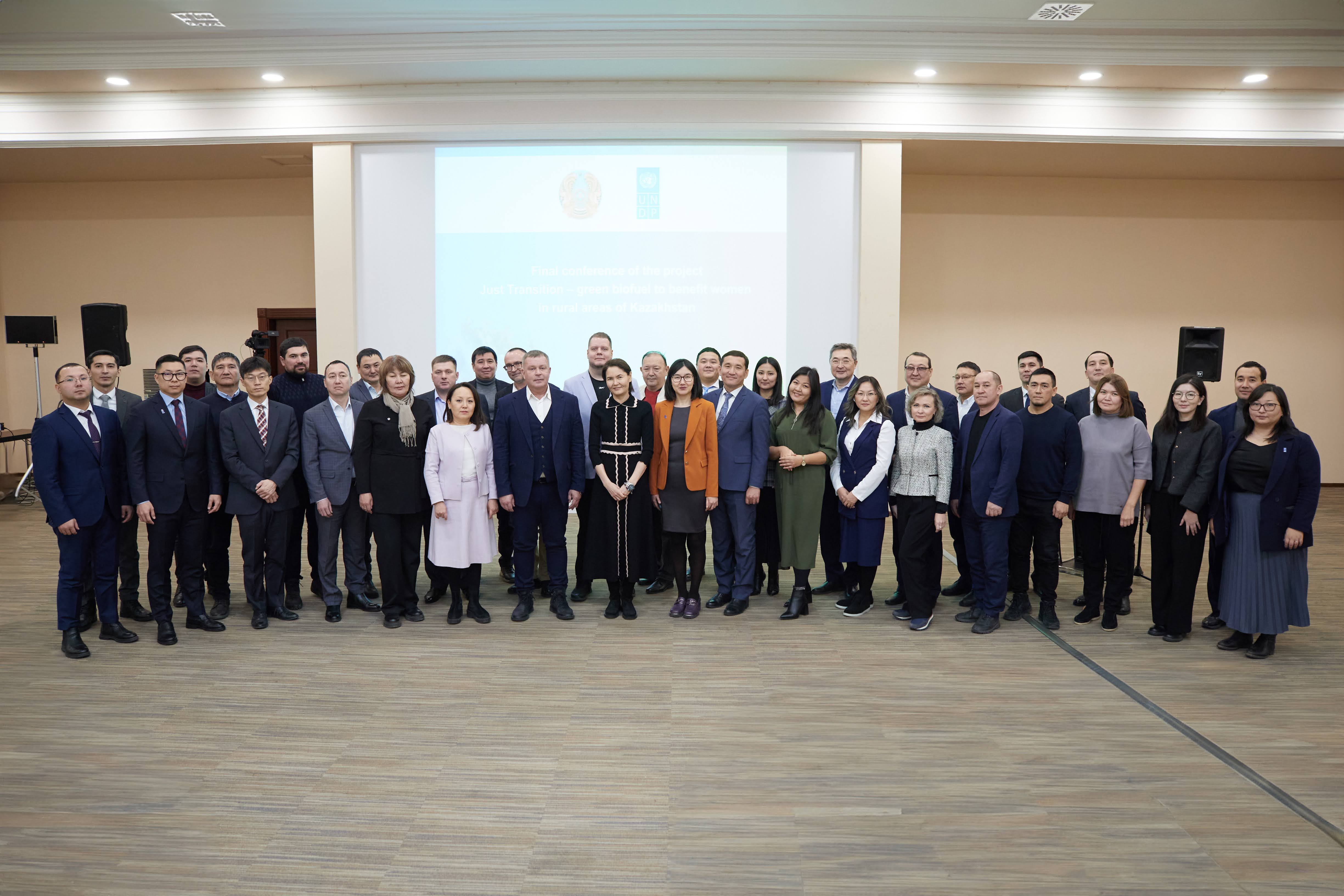
Participants of the event
As a result of the pilot project for the production of alternative fuels, experts have developed important recommendations for the development of this industry. These include expanding the use of a number of existing financing mechanisms to support small and medium-sized enterprises that can effectively contribute to the production of fuel briquettes. It is also recommended that the production of briquettes and pellets be included in the general classification of economic activity as a separate type of activity, and that the programmes and instruments of the DAMU Entrepreneurship Development Fund JSC and existing legislation in the field of subsidies and lending for the agro-industrial complex be used more actively.
Experts also emphasise the importance of training and the dissemination of information on the availability of financial support through associations, banks, and non-governmental organisations. Additional support measures for women's entrepreneurship in this area were also proposed.

 Locations
Locations







